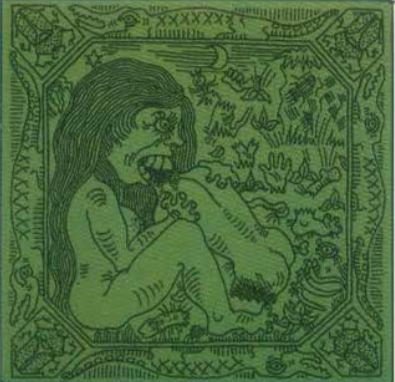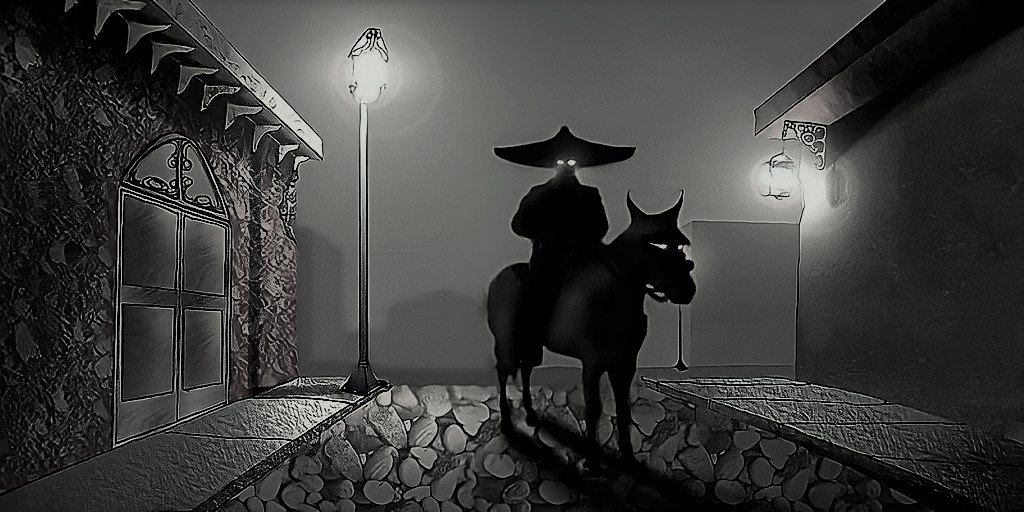Is the Curse of Macbeth Real?
That’s a face that has seen some demons
Those who are superstitious and in a theater will claim the play, Macbeth, by William Shakespeare is a cursed or haunted play. You can’t talk about it or say its name in the theater because some kind of evil will befall you but why do people think this?
Those who know the history and are superstitious will tell you it’s actually because William Shakespeare was inspired by a demon/witch-killing king and demonology.
Today we’re looking at the origin of Macbeth to find out if it’s actually cursed.
A Witch Killing King
Let’s rewind to the year 1597: a brand new book takes Scotland by storm and “by storm”, I mean very light rain since literacy rates weren’t high back then. Most people had to have books read to them by the few that could read.
But this book was basically a how-to on identifying and killing demons, witches, spirits, fairies, and magic. It was called Demonology and written by James Charles Stuart, better known as “The freaking King of Scotland James VI”.
Even dogs are confused and they can’t read
Now I’ll admit this was during the height of the witch trials and people truly did believe witches were among them as evident from the “Witchcraft Act of 1563”. But still, a King, in charge of a large piece of land and plenty of people, wrote a book on murder. A serious book, not even a “ha-ha” book. He even took part in the interrogations and torture of those suspected of witchcraft.
But I’m sure after the book was released he was probably shunned by the other leaders, especially by Queen Elizabeth I, right?
Nope, in fact with Queen Elizabeth in declining health, King James was to be her successor and was in contact with her and her people to ensure a smooth transition.
“Sure he’s crazy but how cool does Witch-Killer King sound?!”
(Pictured: Not the actual Queen of England circa 1603)
And in 1603 when Queen Elizabeth passed away, King James became the new King of England. Essentially the witch-killer got a promotion.
So that was one of our supporting characters in this story; enter stage left our next supporting character, the greatest playwright of all time, William “The Bard” Shakespeare.
Shakespeare’s Gift
Around the time King James VI of Scotland became King James I of England (he had to start back at one because you can’t just transfer over your save file), Shakespeare was pretty prolific. He had already written Romeo and Juliet, Hamlet, A Midsummer's Night Dream, Julius Caesar, and so many more plays and poems, I guess you could say he wasn’t Much Ado About Nothing.
As someone with a highly regarded reputation, you want to stay in the good graces of whoever the leader happens to be at the time, so Shakespeare’s next play would be heavily influenced by the former Scottish King.
For example, the play takes place entirely in Scotland and starts with witches who are one of the evil driving forces of the play. Evil nobleman consort with witches and King Duncan is killed by Macbeth which was taken from real Scottish history as the real King Duncan was killed by Macbeth’s men in the year 1040. At the end of the story, the man who killed the rightful King of Scotland is beheaded.
Oh, spoilers for a 400-year-old play but honestly if you haven’t read or seen Macbeth, that’s on you.
A Curse is Born
Finally, in 1606 Shakespeare unveiled his play to the new King, and here is where the superstitions kicked in. It’s said just prior to the very first showing the boy actor who was set to play Lady Macbeth, became ill and died shortly after. By the way, until the 1660’s it was illegal for women to act, so all parts were played by men.
Turns out though, that the story of the boy actor dying was actually not true and debunked in 1898, unfortunately, that gave the legend a couple of hundred years to percolate and you’ll still find it on plenty of websites. Another famous writer, Mark Twain, once said, “a lie will fly around the whole world while the truth is getting its boots on.”
Truth: “Around the world?! But I haven’t even finished rolling my pants!”
Let’s separate some of the supposed “cursed events” Macbeth caused into two piles, “Confirmation bias” and “Yea, that’s definitely because of a curse.”
Let’s start with the “Confirmation Bias” category. And before we start as a reminder, Confirmation bias is when someone only sees the information that supports their currently held beliefs.
Macbeth’s Curse Strikes
The Great Storm of 1703 in central and southern England, tragically killed anywhere between 8 thousand to 15 thousand people. Some say Macbeth was having their opening night in Bristol this day, I couldn’t confirm that but Bristol wasn’t the only place hit by the storm. Is it more likely a storm hit because of a cursed play or it was just a coincidence?
The Astor Place Riot wherein two actors, one American and one British, both playing Macbeth in separate productions got into a heated debate about who was the better Shakespearean actor. Each actor and their supporters ruined the productions of the other, eventually leading to a riot during a production of Macbeth leaving up to 31 dead.
That one is firmly in the confirmation bias, since in order to put it in the “definitely a curse” category we would have to ignore the divide between the British and American people, the commonality of riots during that time, other prior riots because of theater, the Mayor’s decision to bring in a militia before a riot started, and the fact that the antagonizing between the two actors began during a play of Hamlet.
Finally, all the countless injuries and rare deaths attributed to Macbeth. First, Macbeth is the shortest play of all of Shakespeare's tragedies and one of the most popular, so it’s going to be performed statistically a lot more than others.
Second, there are countless injuries and even deaths during the performance of other plays. Adrian Bailey falling 40 feet during The Little Mermaid, Idina Menzel falling through a trapdoor during Wicked, and has anyone heard of a little play called Spider-Man: Turn off the Dark?
“I definitely have.”
And as for deaths, there’s a whole Wikipedia page listing all the deaths from on-stage productions and it’s pretty long.
So now let’s take a look at the “Yea, no that’s definitely because of a curse” list… hmm weird, I got nothing. It is fun though, attributing things to a curse, my research was pretty entertaining.
If you still think Macbeth is cursed, I’d like to point you in the direction of the recent musical Hamilton wherein during one of the songs, Hamilton makes a direct reference to the Scottish play and then clearly says Macbeth in the next line.
One can only wonder how much more famous and profitable Hamilton would have been if Lin Manuel Miranda would have omitted those lines.
Now if you’ll excuse me I have this strange urge to watch Hamilton.

















